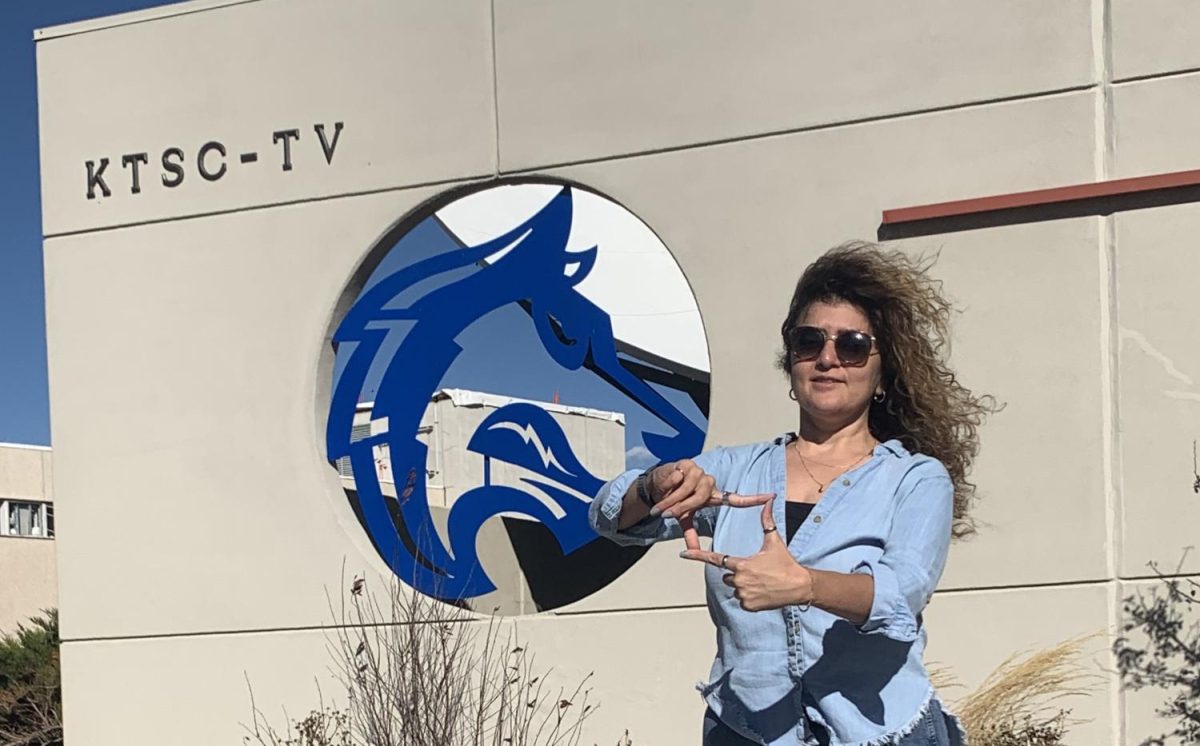Some people believe that unnamed sources are a necessary evil in the news world.
After all, “Deep Throat” helped break open the Watergate scandal and eventually toppled the Nixon presidency.
But more often than not, anonymous sources are seized upon by lazy members of the media and cause nothing but trouble. They are regularly used by journalists as a cop- out when government officials want to protect the origin of a juicy piece of information.
In some cases, unnamed sources can end up making a mockery of the entire journalistic process. Examine the strange case of “Martin Eisenstadt.” He’s not a real person. But he sure has been in the news a lot lately.
A New York Times article published on Nov. 7 stated that Gov. Sarah Palin was offended by some of the criticism she had been receiving from unnamed McCain campaign aides. “Leaks,” the media said, had suggested that Palin was unaware that Africa was a continent, not a country, and that she could not name the nations involved in NAFTA.
In her defense, Palin called the criticism “cruel,” and said “it’s mean-spirited, it’s immature, it’s unprofessional, and those guys are jerks.”
Some of the post-election sniping was legitimate. McCain aides were in the news almost non-stop for a period of time. But some of the most bizarre behavior didn’t even come from the McCain campaign.
It came from two grown men with a blog and a lot of time to kill. Dan Mirvish and Eitan Gorlin, both filmmakers, began creating videos of a character over a year ago with designs on starting a TV series. Over time, that character developed into Eisenstadt, a fake politician with a fancy title and an authentic Jewish last name for effect.
As election season heated up, Eisenstadt was seen across the Internet unleashing profanity-laced rants about Rudy Guliani, and as the presidential race drew closer, Mirvish and Gorlin’s creation was named a senior fellow at the “Harding Institute for Freedom and Democracy.”
Sadly, the Harding Institute doesn’t exist and Eisenstadt’s blog is, as the Times said, a “put on.” The site was updated regularly and sprinkled with bits of “insider information,” and pretty soon people were actually listening.
The creators filmed video segments featuring Eisenstadt commenting on plans to build a casino in Iraq, among other outrageous claims. Even reputable institutions like Mother Jones magazine began to cite the fictional hero as a source of viable information.
Bloggers across the globe ran with the information Eisenstadt’s blog displayed, and eventually led to the whole thing boiling over. When all the news outlets were lambasting Gov. Palin’s alleged follies during the campaign, and when the Africa scandal hit the airwaves, both FOX News and MSNBC attributed the information to Eisenstadt.
MSNBC anchor David Shuster announced on-air that a McCain “policy advisor” named Martin Eisenstadt had come forth as the source of the juicy gossip. Shuster prefaced the ensuing discussion by saying, “we now have a name and a face with these allegations: a McCain foreign policy advisor.”
What happened is explainable, yet inexcusable.
An MSNBC employee received an e-mail containing the information that Eisenstadt had taken credit for the leak on his blog, and without checking it out completely, passed it on. The piece eventually made the air — that’s all according to MSNBC spokesman Jeremy Gaines.
Given the massive amount of information flowing through our media outlets at all hours of the day, it’s actually surprising that things like this don’t blow up more often. At every news level, be it local, regional or national, information is passed out to viewers at light speed.
It’s no surprise that in the rush to give out the juiciest bits of information, or break a hot story first, news organizations rush to conclusions and aim for a general air of relative “truthiness” instead of absolute fact.
The entire incident smacks of journalistic laziness. Had the newsroom employee run a quick Google search on Eisenstadt, he would have uncovered a host of material questioning the character’s authenticity.
Mirvish and Gorin have even attributed their creation’s effectiveness to the “shoddiness” that marks today’s television journalism. And for people ready to begin clamoring about a liberal media bias, don’t bother. Both sides picked up on this story.
As “Deep Throat” taught us, unnamed sources are not always unreliable. But that was still a special exception. Not all anonymous sources are as thoroughly developed and historically relevant.
Some government subjects require anonymity, but in today’s world, that fact is being exploited, and it’s ruining the credibility of the mainstream media.
To that end, the New York Times published an exposé that examined all aspects of this controversy. Gorlin said he felt the Eisenstadt saga was “no more of a joke than half the bloggers or commentators on the Internet or television.”
He’s probably right.







